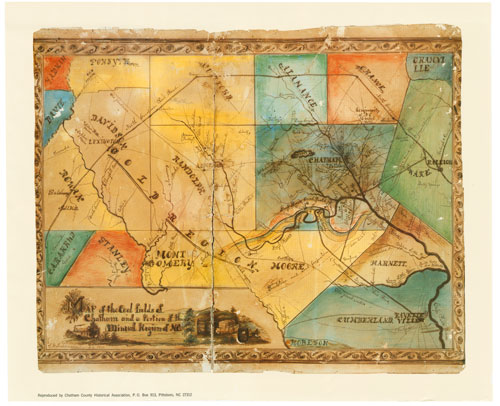Today’s News and Observer recalls Rick Perry’s reaction to North Carolina barbecue in 1992. “I’ve had road kill that tasted better than that,” Perry is alleged to have uttered during a cook-off pitting North Carolina’s finest against West Texas barbecue at the Republican National Convention in Houston. The N&O attributes Perry’s comment to Holy Smoke: The Big Book of North Carolina Barbecue by John Shelton Reed and Dale Volberg Reed. Our crack research team (okay, it’s really just me) found the aforementioned quote in a story that the N&O‘s Bill Krueger filed from Houston on August 20, 1992. For your reading pleasure, here are a few more lines from Krueger’s dispatch.
Will King of King’s Restaurant in Kinston drove 24 hours to bring 500 pounds of pig for this cook-off. The sauce was his grandfather’s 46-year-old recipe. On the side were 15 gallons of Brunswick stew, 15 gallons of coleslaw and 1,750 hush puppies — the makings of a feast just like the one he staged for North Carolina Democrats at their national convention last month in New York.
“I certainly feel like mine is the superior product,” King said. Then he moved to dissociate himself from the kind of negative politicking practiced lately by Republicans and Democrats.
“I look forward to a fair and extremely friendly competition,” he said. “This is not about mudslinging.”
If bigger is better, as everyone in Texas seems to think, King was in trouble. His cooker looked positively scrawny up against the 5-by-24-foot monster that Joe Allen’s Barbecue and Catering of Abilene was using to fix 350 pounds of beef tenderloin and 450 ears of corn. Pinto beans were cooking in a 50-gallon pot….
About 400 Texas and North Carolina delegates and guests waited in long lines to sample both barbecues. Dozens of reporters hovered around to seek the delegates’ opinions while television cameras got pictures of them chowing down.
N.C. GOP Chairman Jack Hawke worried when he learned that one of the judges was writer Michael Kinsley of The New Republic.
“A liberal like that couldn’t understand pork barbecue,” Hawke said.
Sure enough, Kinsley sheepishly told a reporter that he preferred the Texas barbecue. “It’s spicier,” he said before ducking out to avoid having to announce his choice to the crowd.
Mel Stewart of Charlotte, who won the gold medal in the 200-meter butterfly at the Olympics in Barcelona, clearly didn’t think too much of the North Carolina barbecue. But he stuck to his roots.
“I’m a pretty loyal guy, so I’ll have to vote for North Carolina,” he said.
[Convention delegate Joel] Loya, the Abilene loyalist, wasn’t sure what to do with his North Carolina barbecue. He wondered whether he should mix it with his Brunswick stew. Then he asked how much sauce to put on it. When he tried it, though, he liked its tangy taste.
“I would give it an ‘A,'” he said. “This is great.”
Texas Agriculture Commissioner Rick Perry was not impressed.
“I’ve had road kill that tasted better than that,” he declared.
But with party unity being such a big thing this week, Hawke and Texas GOP Chairman Fred Meyer worked out a deal.
They declared the contest a draw.
Here’s the question Rick Perry should expect from reporters on his next swing through the Old North State: When and why did you eat road kill?



